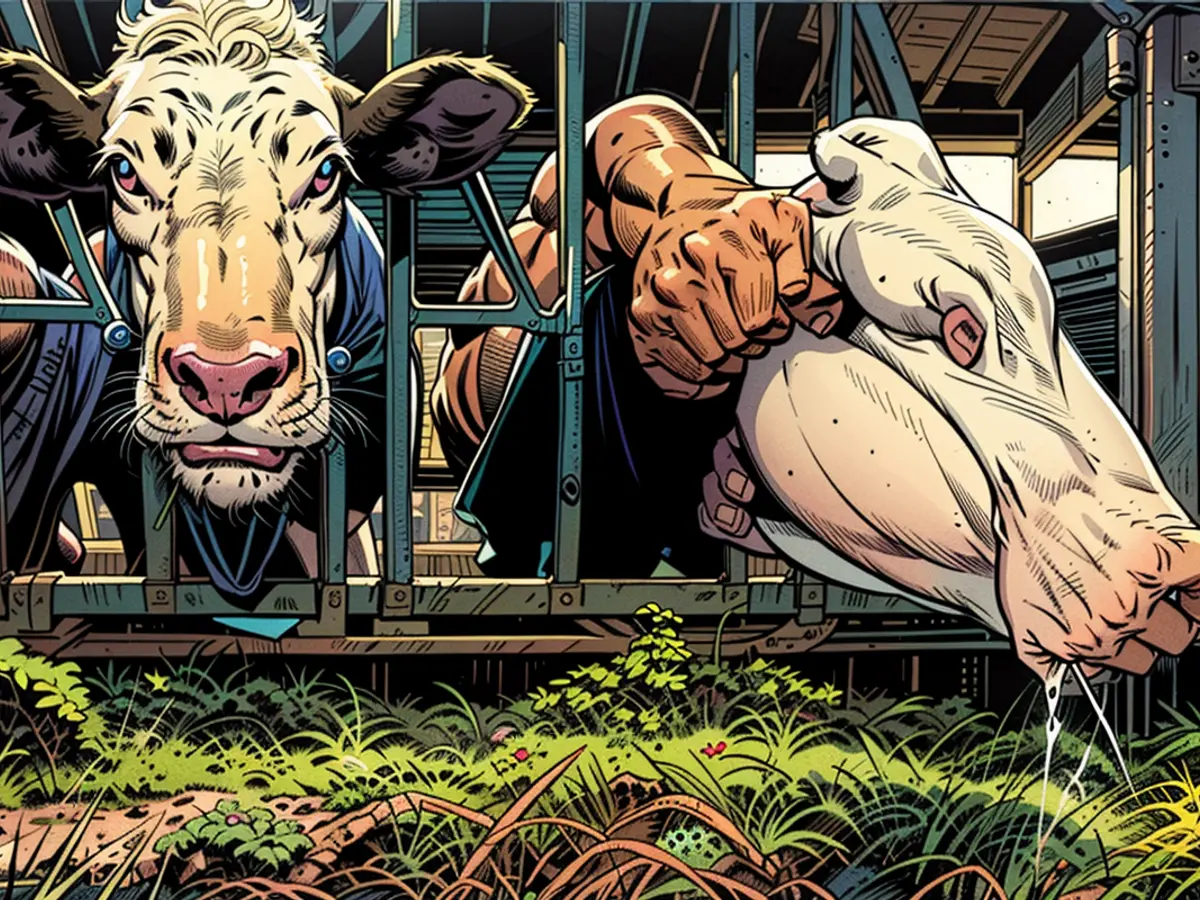Epizootic - Bluetongue: No new cases known so far
The number of animals infected with Blue Tongue disease in Hessen has not increased yet. "It is to be expected that it will spread further," said a spokesperson for the Agriculture Ministry in Wiesbaden. The virus is not transmitted from animal to animal, but through small blood-sucking midges. An infected animal was discovered in Alsfeld, Vogelsbergkreis. The suspicion was confirmed by the Hessian State Laboratory last Friday. It was a cattle from Lower Saxony, which had been negative before transport, according to ministry statements.
Blue Tongue disease mainly affects sheep and goats, as the Vogelsbergkreis announced. They often show strong symptoms such as fever and lethargy, deaths are "not uncommon". In cattle, the disease usually runs mildly. Milk cows, however, often give less milk. The agent is not transferable to humans. Meat and milk as well as products derived from them can be consumed without concern, according to the ministry.
Animals from Hessen may no longer be transported to disease-free regions within the EU or to neighboring federal states without Blue Tongue cases. In the Federal Republic, according to the statements, Hessen, North Rhine-Westphalia, Lower Saxony, Bremen and Rhineland-Palatinate are currently affected.
Calves can be vaccinated against Blue Tongue disease. "A vaccination protects against severe courses, but not against infection," explained the ministry spokesperson. In Hessen, only very few animals have been vaccinated, the quote is in the single-digit percentage range.
The Blue Tongue disease outbreak originated in Lower Saxony, as revealed by the Agriculture Ministry in Wiesbaden. Hesse, being a neighboring federal state, has also been impacted, with an infected animal discovered in Alsfeld. The Agriculture Ministry in Hesse has confirmed that milk cows, although less affected, may still produce less milk due to the illness. Despite the widespread concern, Blue Tongue disease does not pose a threat to human health, and both meat and milk can be safely consumed.








